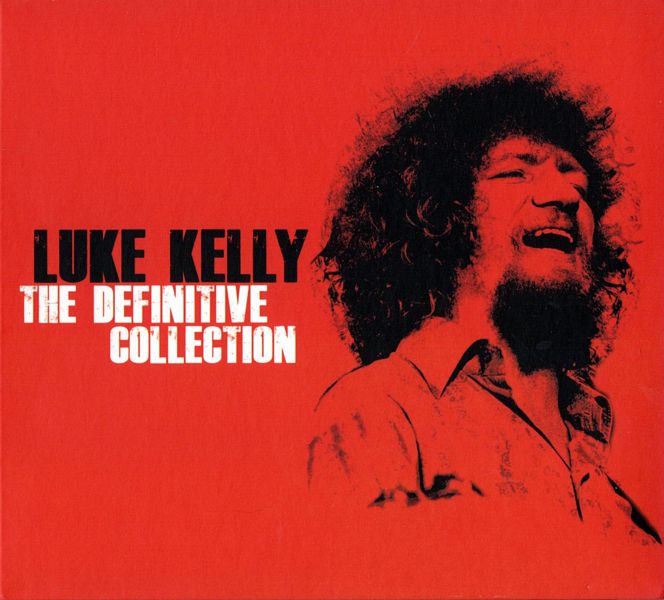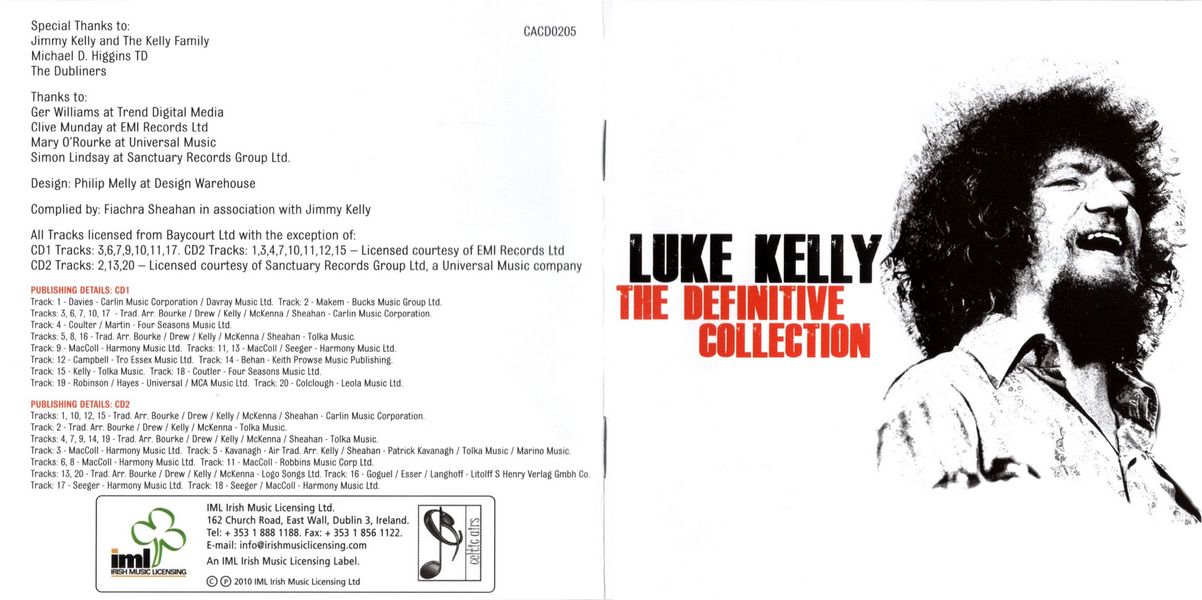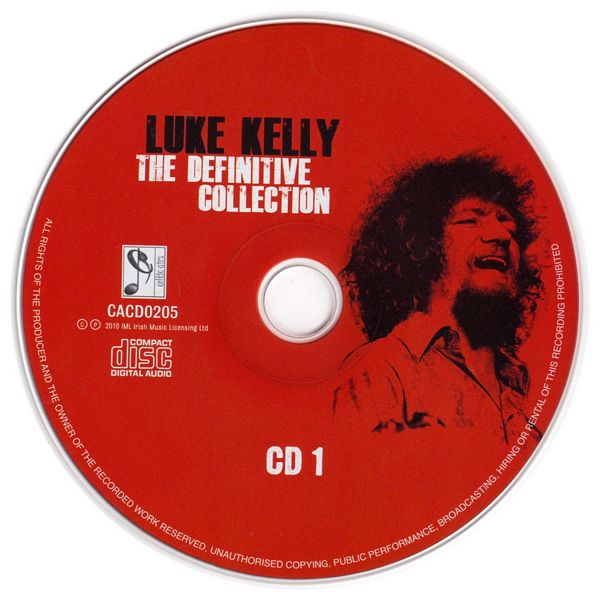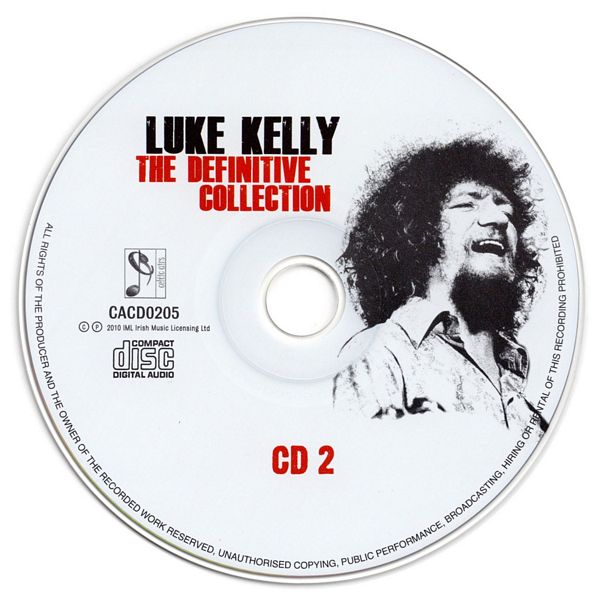

 |

|



|
| more images |
Sleeve Notes
Any words that one might write, and any words that anyone might utter, would be insufficient to capture the essence of Luke Kelly. During the years which have elapsed since Luke's death, there have been some fine recollections of his contribution to the world of Irish music and song. The significance of Luke's contribution to Irish culture should be stressed in a more general way, and to give witness to the fact that he lent his name and his life to the more important movements for social and political change of his time.
Luke's choice of songs and his rendering of them was not simply something that might be reduced to a growing and popular interest on the part of the public — it was very much deeper than that. He contributed a dimension of conviction that his friends will not forget. His singing of The Peat Bog Soldiers' recorded previously by Paul Robeson — himself an artist of deep political consciousness — was no accident. As has been written elsewhere, he sang this song in public, at the meeting at which the widow of the murdered President Allende of Chile spoke.
Luke drew from experience, from the time of his birth in November 1940 to his untimely death, from a diversity of sources, be it in Newcastle or Birmingham where he encountered folk music and politics — a union which he saw as valuable, even necessary and to that connection he made a unique contribution among artists. He had a sense of restless energy that sought the meaning of things in the full complexity of life.
He moved from the world of song and music, through the world of poetry and theatre, to the world of politics in its finest and best sense. He was interested in how one's full talents might be used to express the hurt and the pain of the oppressed and the exploited. To celebrate life without that recognition was a choice he respected.
His relationship to folk music and his association with such artists as Ewan MacColl also reflected a commitment that went way beyond singing — a commitment that sought the recovery of the history and present experience of those who lived at the margin, or below the limits set for them by exploitation and repression.
This album is testament to a person, every aspect of whose life rejected narrowness and boundaries. His life was not divided from his art. He did not subscribe to any division of mind and heart. He did not limit his concern to the causes of a single people or a single nation nor even was it limited to a single source of musical inspiration. Apart from his tremendous contribution to folk music with The Dubliners there was his own composition 'For What Died The Sons Of Roisin?'
There is, too, his recording of 'Thank You For The Days' which drew from rock music, a rich source he recognised for the contribution it could make. He was a gentle person, but it was not a gentleness that should be construed as weakness: he was interested in the spirit of things; he rejected all forms of sectarianism and narrow affiliation. He would not thank us for any domestication in retrospect of the wild and generous fullness of his life. His was a spirit that soared, a voice that sang the words of Robbie Burns, Ewan MacColl and others, in a very special way. Such songs had been chosen with the deliberation and discrimination exercised in that choice, and the way that they were sung went beyond any immediate public demand or taste.
The causes that moved him, be it the opposition to apartheid or the imprisonment of Nelson Mandela, be it the movement of the black people for freedom and equality in the United States; be it for the dignity of person, be it for migrants; be it for those who had to waste out their days or spend the evening of their lives without dignity — those whom the line "the cost of human life is very low" applied.
All those causes benefited from Luke's support and any of us who had him among us will forever treasure the life and energy he gave. As much as the tasks to which he lent himself are unfinished ones, his life might be best construed as an unfinished song, the title Joan Jara chose for her biography of her husband, Victor
Luke's untimely death cut short a life lived with integrity and with no concessions to sentiment. He preferred the strength of passion.
He would like us to continue to rage on with him rather than to use any sadness as a crutch for fatalism, a sop to useless years.
He would like us to discover or hold on to a commitment like his and he would like us too, to allow ourselves to laugh.
It is against this forward thrust of history, by our efforts to put the stamp of humanity in our own times and our world, and not by lesser standards, that we will all be judged. When our times are assessed, Luke's contribution will be remembered as a Dubliner through whose music and life, the pain and joy of his times rang with all the force of one who preferred to pose questions rather than settle for a shoddy answer
For his work in our times we are indebted and enriched. His influence will join the influence of others and will grow and become stronger
In that way his voice sings on …
Michael D. Higgins TD